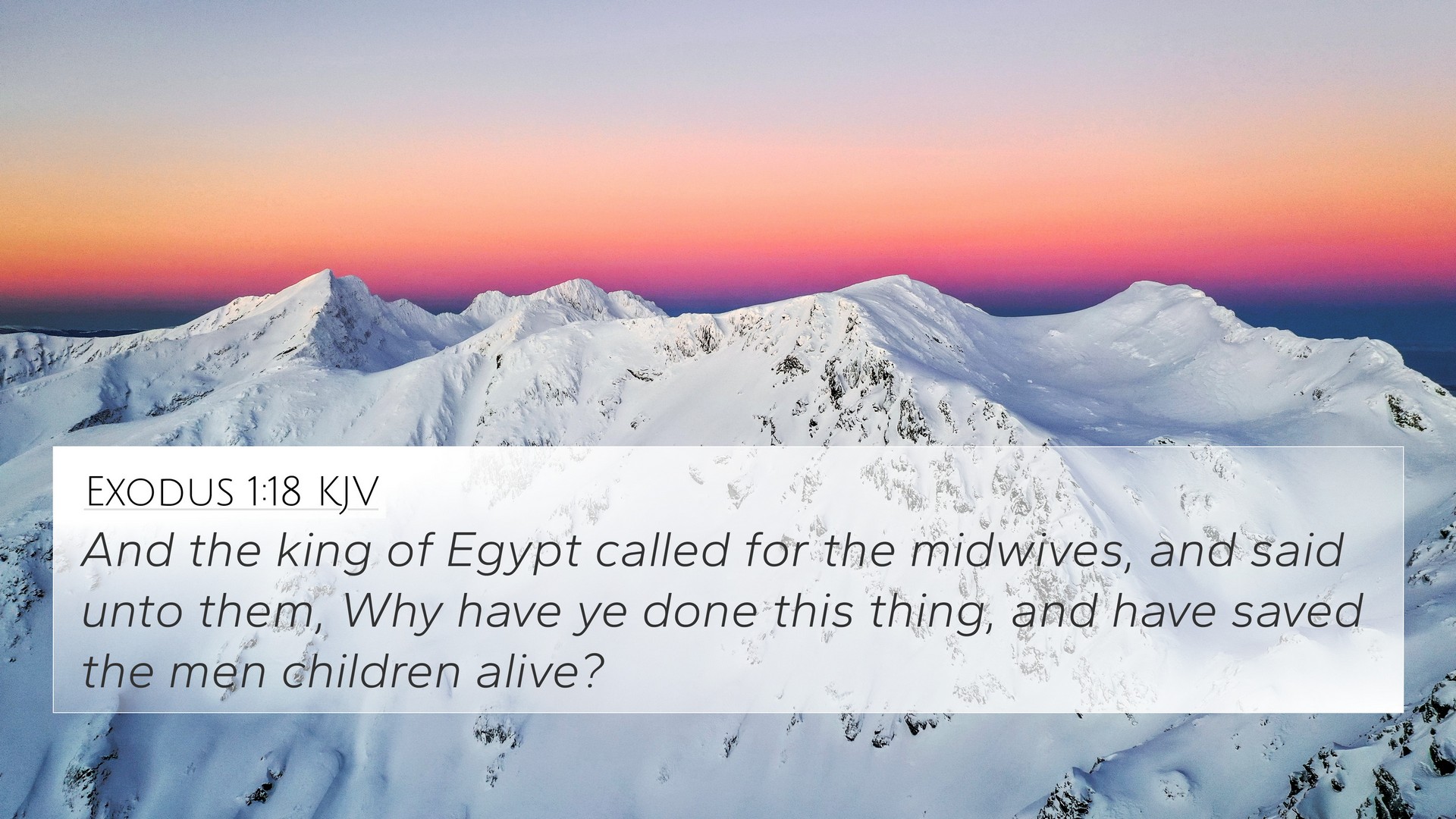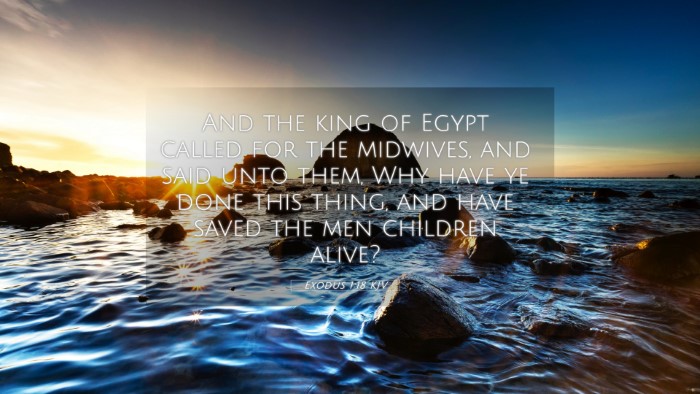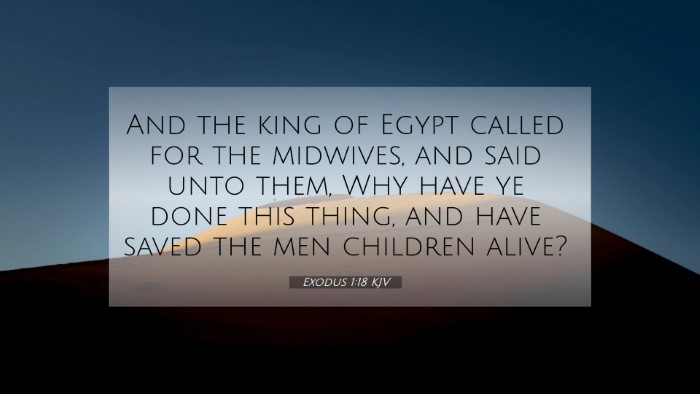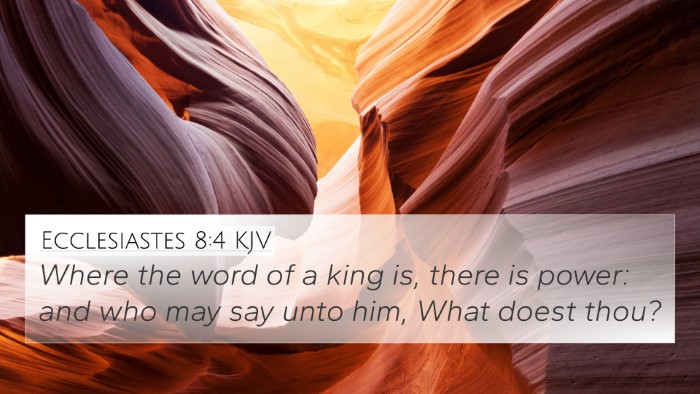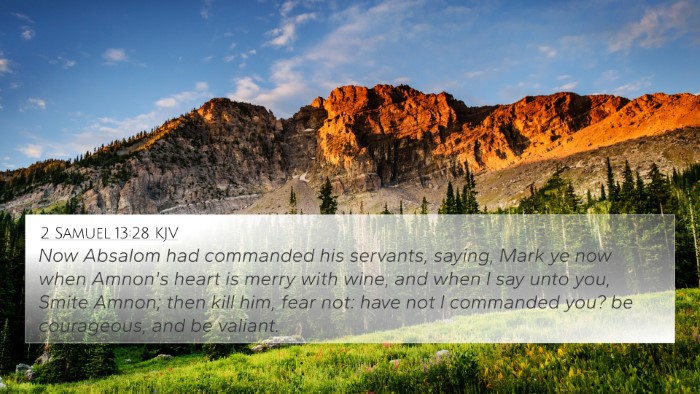Understanding Exodus 1:18
Exodus 1:18: “So the king of Egypt called for the midwives and said to them, ‘Why have you done this thing and saved the male children alive?’”
Summary of Exodus 1:18
In this verse, the Pharaoh confronts the midwives who have been disobeying his orders to kill Hebrew male infants. Their act of civil disobedience highlights their fear of God and moral integrity, which stands in stark contrast to the oppressive regime they serve.
Commentary Insights
Various public domain commentaries reveal depth in this passage:
-
Matthew Henry:
Henry emphasizes the moral courage of the Hebrew midwives, noting that defying the tyrannical order of Pharaoh was an act of faith. He suggests that their reverence for God outweighed their fear of man, aligning their actions with God's purpose.
-
Albert Barnes:
Barnes explains how the Pharaoh's inquiry reflects the desperation of his rule. The response of the midwives illustrates a key thematic connection between trust in divine providence and adherence to God's commandments, drawing attention to God's protection over His people.
-
Adam Clarke:
Clarke notes the socio-political context of the time, highlighting the Hebrew midwives' role as guardians of life amidst a genocidal command. Their response offered a powerful testament to the struggle for justice and the sanctity of life.
Cross-References
This verse connects with numerous other Scriptures that echo similar themes:
- Acts 5:29: “We ought to obey God rather than men.”
- Hebrews 11:23: “By faith Moses, when he was born, was hidden three months by his parents, because they saw he was a beautiful child, and they were not afraid of the king’s command.”
- 1 Peter 2:13-14: Speak of submitting to every human institution and doing good.
- Daniel 3:16-18: Shadrach, Meshach, and Abednego refuse to bow down to the king’s image.
- Matthew 10:28: “And do not fear those who kill the body but cannot kill the soul.”
- Psalm 27:1: “The Lord is my light and my salvation; whom shall I fear?”
- Proverbs 28:1: “The wicked flee when no one pursues, but the righteous are bold as a lion.”
Thematic Connections
Exodus 1:18 can be viewed through various thematic lenses:
- Moral Courage: The midwives exemplify righteousness and moral courage by prioritizing divine commands over tyrannical orders.
- Divine Protection: Their actions reveal God's providence and protection over His people during times of persecution.
- Justice and Deliverance: This narrative foreshadows God’s eventual deliverance of Israel from bondage, highlighting themes of justice.
Tools for Bible Cross-Referencing
For deeper understanding and comprehensive Bible cross-reference studies, consider the following:
- Bible Concordances: Useful for locating words and themes that relate to certain scriptures.
- Bible Cross-Reference Guides: These can help connect passages across the scriptures that share similar messages.
- Cross-Reference Bible Study Techniques: Methods such as thematic studies and parallel verse comparisons enhance the understanding of context.
Finding Bible Cross-References
How to find cross-references in the Bible involves:
- Utilizing a Bible Reference Resource that lists cross-referenced materials.
- Learning about Bible Chain References to understand interconnected scriptures.
- Engaging in Comparative Studies of themes, especially between the Old and New Testament.
Conclusion
Exodus 1:18 serves as a tremendous example of faith and righteousness in the face of adversity. By studying this verse alongside associated Scriptures, believers can appreciate the moral imperatives it reveals and the overarching narrative of deliverance throughout the Bible.
